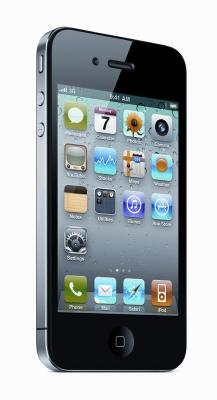NXP CEO Casts More Doubt on Prospects for NFC IPhone in 2011

NXP Semiconductors CEO Richard Clemmer said he would be “surprised” if the next iPhone supports Near Field Communication–the most important source yet to express doubts that Apple will adopt NFC this year.
An NXP spokesman today confirmed to NFC Times that Clemmer made the statement at the Reuters Global Technology Summit held late last week. A little-noticed comment was buried in a story by Reuters.
Most people in the industry agree that Netherlands-based NXP is currently the largest supplier of NFC chips to the market and would be the likely supplier of chips to Apple if it chose to adopt NFC.
“I’d be surprised if Apple's iPhone 5 has NFC,” Clemmer said, according to the NXP spokesman. The NXP chief executive added in response to a question that he believes the iPhone 6, or whatever nomenclature Apple chooses for its next iPhone versions, will come out next spring.
He did not say whether he thought next year’s iPhone would support NFC, but many in the industry believe that if Apple does not adopt NFC for its 2011 iPhone, expected to be released this summer or fall, that it would incorporate the technology in the following version. Apple will probably make its NFC intentions known for this year at its Worldwide Developers Conference, scheduled for next month.
The only other chip supplier that is shipping NFC chips in volume, France-based Inside Secure, is unlikely to be supplying Apple, said sources.
Doubts have been growing that Apple is ready to incorporate NFC in its devices. As NFC Times reported earlier, some analysts, after talking to industry suppliers and other industry sources, did not include an NFC-enabled iPhone in their projections of NFC phone shipments for 2011.
While Apple has applied for a number of patents featuring NFC, the company may not believe the technology is mature enough or that there is a sufficient infrastructure of readers and tags to create a compelling user experience, said observers.
That is despite that fact that Apple’s main rivals in the smartphone market, Google, Nokia and Research in Motion, all have embraced NFC. But they are just starting to introduce phones.
A key theme running through Apple’s NFC patents is use of the technology to pair Apple devices and enable users to share content and settings among the devices.
For that, it wouldn’t need an NFC chip that supports payment or other applications using card-emulation mode or a chip that comes with an embedded secure element. Other NFC chip suppliers besides NXP and Inside might be ready to supply this, though these chip suppliers are still believed to be gearing up for the market.
 In any case, Clemmer would have no reason to pour cold water on the stubbornly persistent rumors that Apple will embrace NFC for this year’s iPhone–even if NXP were not the supplier. NXP’s share price has more than doubled since December, fueled by the buzz around NFC and especially the chip maker’s partnership with Google to incorporate NFC in Google’s Nexus S phone and its Android smartphone operating system.
In any case, Clemmer would have no reason to pour cold water on the stubbornly persistent rumors that Apple will embrace NFC for this year’s iPhone–even if NXP were not the supplier. NXP’s share price has more than doubled since December, fueled by the buzz around NFC and especially the chip maker’s partnership with Google to incorporate NFC in Google’s Nexus S phone and its Android smartphone operating system.
Clemmer, at the Reuters event, also noted that the company is working with all major handset makers and mobile operating system suppliers, which would include Microsoft and its Windows Phone operating system that has been adopted by Nokia.
He claimed that NXP holds a 70% share of the NFC chip market this year, and kept to his projection that there would be about 70 million NFC chips shipped in 2011 and about double that next year from all suppliers, the NXP spokesman confirmed. The Reuters story inaccurately stated that Clemmer had projected NXP itself would ship 70 million chips this year and double that or more in 2012. Inside Secure’s CEO Rémy de Tonnac disputes the NXP estimate on market share, telling NFC Times last week, “Let’s count the chips at the end of the year.”
Clemmer also predicted that in five years, two-thirds to three-quarters of all smartphones would pack NFC.
Within a few years, much of this NFC technology in smartphones is expected to be incorporated in combination wireless chips that also support such technologies as Bluetooth, WiFi and GPS.
NXP does not produce these types of chips, which are instead made by such companies as Broadcom. It would then focus fully on secure elements to support NFC applications in the phones, Clemmer said.












